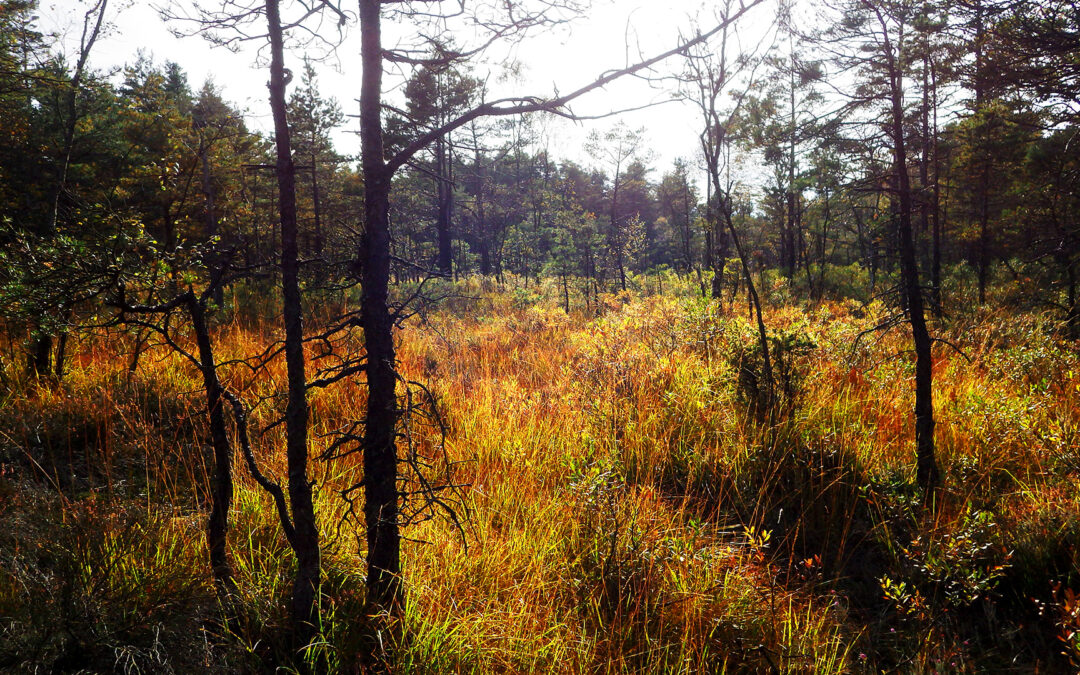Getting lost for some time in the wild isn’t necessarily a bad or dangerous experience and also something you can practice in gradually more difficult environments. Here are some tips based on personal experience of getting “lost” in the woods every now and then. It is an easy thing to do in the woods on less travelled trails that get overgrown or just suddenly disappear or are hard to distinguish from other trails that have come into existance after your map was created. It is bound to happen to you sooner or later if you go off into new, unknown and remote areas regularly. And while a GPS is certainly a useful tool, it simply isn’t as reliable as simpler means like knowledge and compass & map.
To begin with, a small compass and a map are of course things you should always bring along with you when you decide to go off into the woods. With them you will never be truly lost for any longer period of time, provided you learn to use them. As you walk to your object it is a good idea to mark your trails particularly where the trail is vague by breaking small twigs or brush that line the trail or by tying a handful of straw to branches every now and then, as that will help you on the return trip.
Also, always let other people know in what area you intend to move about and for how long, before you head off so they can call for assistance should you get lost for a longer time period.
Furthermore, figuring out where you are once you have gotten lost is a skill that can be practiced reasonably safely. Start simple in a smaller area, near areas you already know, and which is cordoned off by water, a stream, roads etc. Just walk off-trail for a bit or take any trail that you are unfamiliar with for a while, until you get lost. Make sure to take time into account, so don’t start late in the day, and make sure to bring proper gear with you, like a compass, a map, a sleeping bag & shelter and water & food.
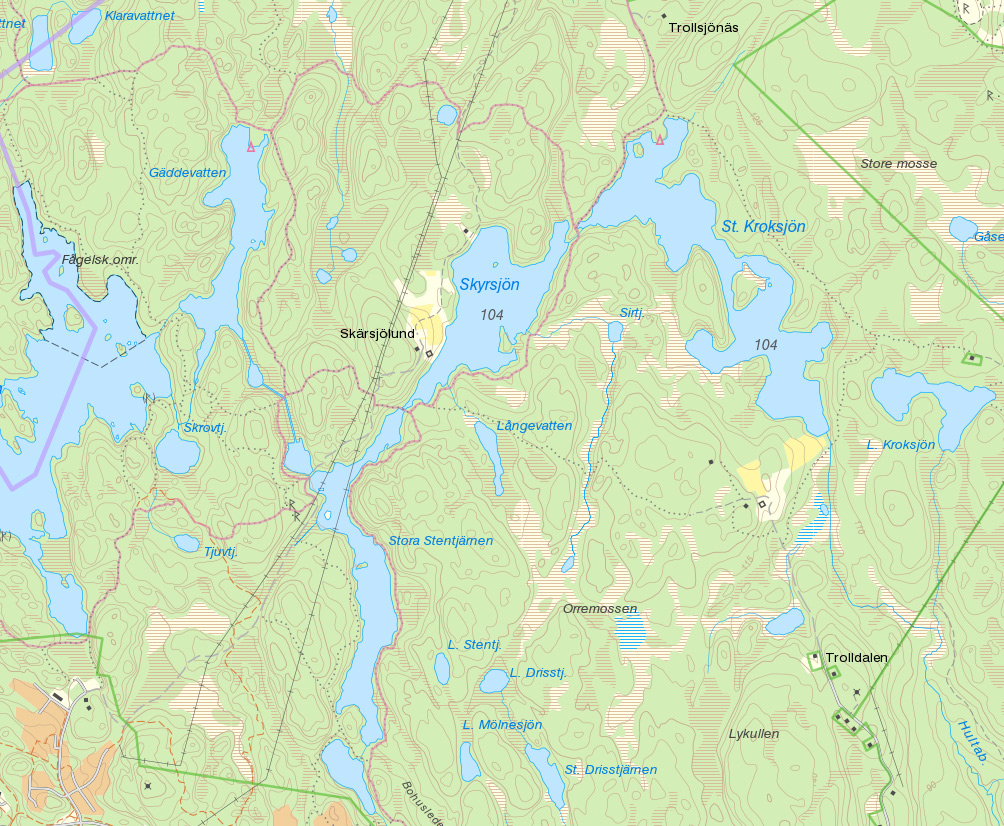
Example of areas that are perfect for practicing finding your way back. The areas are big enough to get properly lost in for an hour or two, but are also cordoned off by bodies of water that are lined with larger trails. Several streams also divide the land.
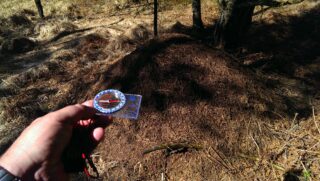
Ant hill built towards where it gets the most exposure to sunlight and heat, towards the south
If you should find yourself lost without a map and compass, then there are signs in nature that can help you with directions, like ants building their stacks mostly, but not perfectly or exclusively, towards south, moss and lichen commonly growing denser on the north side of trees, water fowl flying in the woods generally aiming for bodies of water, and more (read up on these topics specifically as they are complex). Generally speaking though, ants like dry heat, while moss and lichen prefer cool shade and dampness. Also, no single sign should be used on its own. Many need to be taken into account for a combined picture of your directions. Also, remember to listen for sounds of civilization, like cars, cattle, dogs barking etc, which can help you figure out where to aim for.
Realizing that you are lost early on is of course also important, which means you need to be aware of landmarks in your surroundings, like rocks, unusual trees, streams etc, and based on that notice when you come into a new unfamiliar area.
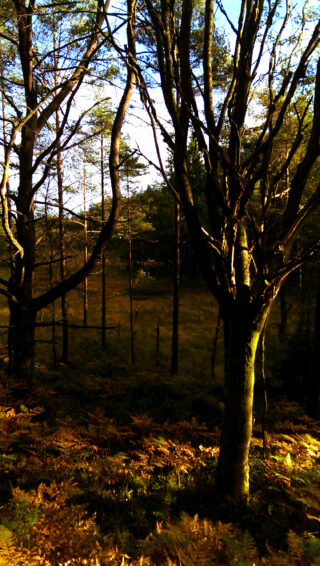 When that happens, don’t panic. Stay calm and think through your situation. Panic and stress will narrow your vision and thinking, which will likely cause you to act unwisely and to miss important things that can help you. Don’t rush things. Take your time to think. Walk and breathe normally and stay observant of your surroundings. Avoid just looking down at the trail and where you set your feet.
When that happens, don’t panic. Stay calm and think through your situation. Panic and stress will narrow your vision and thinking, which will likely cause you to act unwisely and to miss important things that can help you. Don’t rush things. Take your time to think. Walk and breathe normally and stay observant of your surroundings. Avoid just looking down at the trail and where you set your feet.
Retracing your steps and going back to where or nearer where you first got lost may be a good option, provided you can do that without getting even more lost.
If you feel creeping anxiety then try to think of yourself as not “lost”, but just as “having a wider space where you know you are situated but not what is immediately around you“. Basically, you still know roughly where you are, just not exactly where. This is not something most people are used to from daily life, as we mostly move about in well-known urban or rural settings, but training beforehand helps you to be prepared and will certainly make it less of an issue if it happens by accident.
At first, when you find yourself lost, it will feel disconcerting as you get a sense of being in complete limbo, all alone with no one to help you, but once you set up an easy to reach goal, like a large “body”, e.g; a road, river or lake, things will feel more under control and any anxiety felt will lessen distinctly.
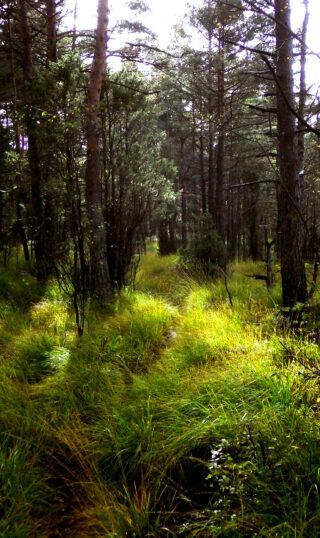 Following trails can be quite treacherous as even if you have a compass and know what general direction the trail seems to be leading, the always uncertain balance between left and right turns will quickly lead you off in a different direction than you intend to, easily shifting your direction by 45 degrees or more, without you realizing it. With time that can led you astray quite badly. Naturally, trails lead somewhere, but whereto is difficult to tell and it may cost you a lot of time and energy both to reach the end of the trail, and also to get back to where you really intended to go.
Following trails can be quite treacherous as even if you have a compass and know what general direction the trail seems to be leading, the always uncertain balance between left and right turns will quickly lead you off in a different direction than you intend to, easily shifting your direction by 45 degrees or more, without you realizing it. With time that can led you astray quite badly. Naturally, trails lead somewhere, but whereto is difficult to tell and it may cost you a lot of time and energy both to reach the end of the trail, and also to get back to where you really intended to go.
For that reason, in some cases, it is better to push on off-trail, instead following the directions of the compass. Of course that requires you to have a map or good knowledge of the area so you can push on through the woods towards a good goal.
So, based on the general area you believe you are in, try to decide on a new good place to aim for. Think of large areas like, again, roads, lakes or oceans, streams and rivers, farmland etc. Things that naturally limit your movements and are easy to find given enough time and with consistent movement. The basic principle here is focusing on big, aided by smaller focus.
Make constant use of your map and try to identify where you are as you come across streams, marshy and open area, unusual rock formations, power lines, etc, etc. Pose one or more hypotheses and seek for things that confirm these as you continue, but don’t get stuck on a single idea and be prepared to discard it if things point to it being wrong. With time, if you are aiming for a larger “body” you should find it without too much trouble. And if you end up at another, you should be able to identify it easily enough on the map based on the rough direction you have been moving, the shape of the object and other smaller objects in the vicinity.
***
I hope you have found this small article interesting and intriguing. Being lost for a while can be a rewarding experience, but again remember to start small, and let others know of your plans before you take off into unexplored lands. Have fun and enjoy nature.
Also read
Walking with ease and awareness

